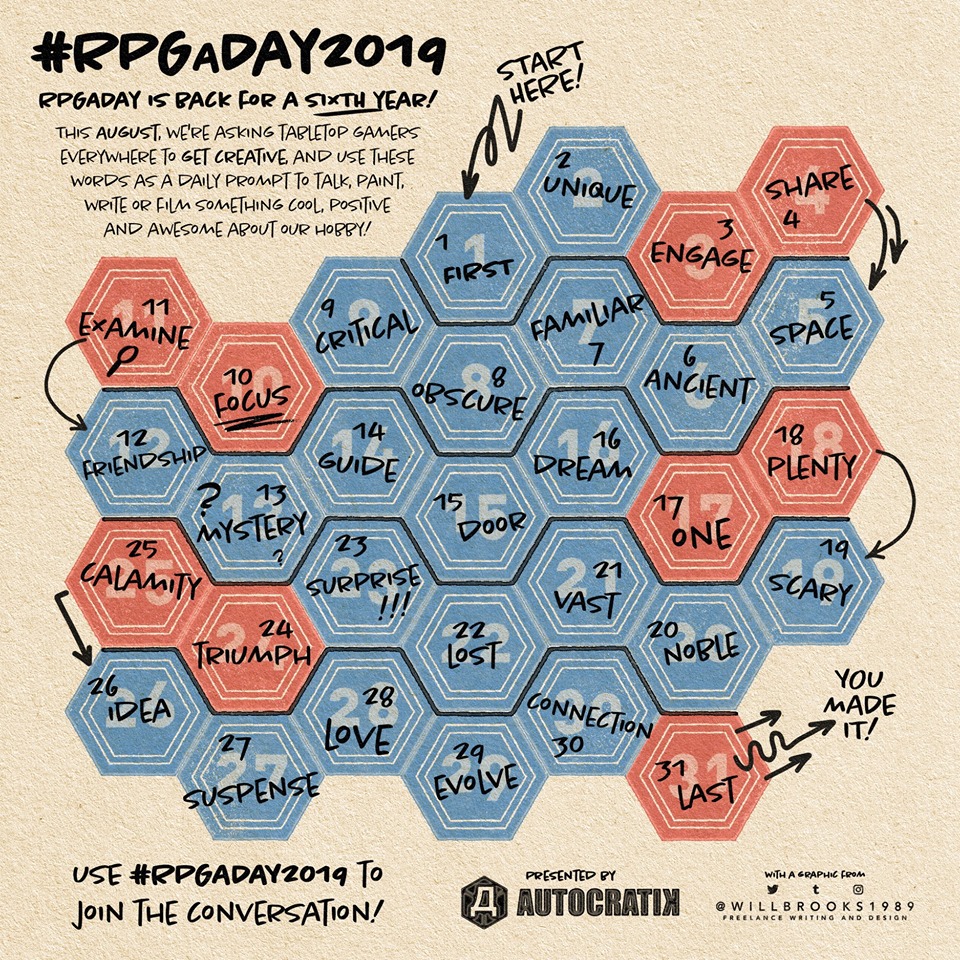Today’s word is ‘engage’. Engaging the world of the game is encourage by Palladium games. The starting point for this essay is a video on the supers nature of 5e D&D. The Complex Games Apologist argued that more than any prior edition, fifth edition is a supers game. He did not mean it was a game featuring spandex clad heroes wearing caps. His argument is one of focus. The focus of the action is abilities on the character-sheet. The world becomes backdrop instead of active part of the action. He remembers in older editions gaining information and items while making a web of allies were crucial to success. Now, he says, what is on the character-sheet matters more.
The argument rings true, but in 5e it is more an evolution than a revolution. This started to be true in 3e, where the build became a major part of play. The optimization of class selections and prestige class access became more important than relationships, knowledge, or items gained in an adventure. Type IV structured this into the whole of the game.
This sense of engaging the character creation system more than the world is one reason I embraced the OSR. It is something very true in Palladium game.
One constant charge against Palladium games is going up a level doesn’t mean much. If you have an HTH combat skill, you’ll pick up some bonuses. Everyone picks up actions at different rates. Your skills go up. At certain points you pick up a few new skills. But, many classes get nothing else. The majority of the tools your character has to change the world is on the character sheet at day one.
So, how do characters become more effective? Characters explore and gain knowledge about the world. They make friends and allies. As they adventure, characters do favors and later they call in the favors they earned
The characters and thus their players, have to engage the broader world. While more modern games like Pathfinder do not prevent this, they do not reward it. Unless the GM works at it, the game rewards gaining XP more than anything else. When the character sheet is paramount what buff the character sheet is what matters
This gaining of XP in 3.x descended systems differs from older RPGs as well and, again, in ways that discourage engaging the world. The much maligned XP for gold in pre-third edition D&D rewarded engaging in the world. A group of monsters might, at most, yield a couple of hundred XP to characters of the same level. Treasure held by the monsters yields ten times the XP. Sure, you can get the combination by killing the monsters and taking their stuff. You also might wind up dead.
Oh, and dead monsters cannot be later allies or even just bad guys who owe you a favor.
But by engaging the world the players can learn about a separate entrance to the monster’s lair. Or perhaps by engaging the world they met these monsters’ mortal enemies who they can call in to clear the monsters out while the players grab the treasure. Or a couple of dozen other routes to get the treasure, and thus the XP, not tied only to items on their character sheet. Palladium’s XP charts, with items for clever plans and avoiding violence, do the same thing, albeit in a less aim manner.
This reward for engaging the world being baked into the system is one reason Palladium’s system, for all its warts, appeals to me. Want a super powered hero at level one, then play a Glitterboy or a Knight of the Cosmic Forge. You’ll be a big boy on most blocks, but there will still be other blocks that no matter how much you level up the crazy powers on your character sheet will not be the sole solution there.
Instead, you must engage the world or, in a more relevant phrase, roleplay.
RPG-a-Day 2019 Posts
Day 1: Three Firsts
Day 2: Unique Features of Palladium
Day 3: Engaging the World
Day 4: Sharing Jekyll and Hyde
Day 14: Dream Blindness
#rpgaday2019


Be First to Comment